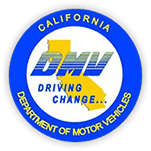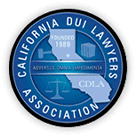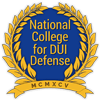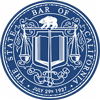









Upon being arrested for DUI-DWI, the arresting officer will give you a notice of license suspension. You will need to contact your local Driver Safety Office with-in 10 calendar days to schedule a DMV administrative hearing. This hearing grants you the opportunity to contest the DMV’s decision to suspend your driver’s license. It is not the purpose of the DMV hearing assess your innocence or guilt, but is simply an administrative proceeding that focuses on reviewing the circumstances surrounding your arrest and determining whether or not viable justification to suspend your driving privileges should be suspended.
While you are not required to retain a DUI attorney to represent you at your DMV DUI hearing, you have the right to do so. During this part of the process, you or your Orange County DMV hearing lawyer have the right to review evidence, cross-examine any witnesses from the department, and you can present evidence, testimony, and witnesses on your own behalf.
In addition to court proceedings, a drunk-driving arrest triggers a DMV administrative action to suspend your privilege to drive. The Administrative Per Se Hearing (APS) is your opportunity to challenge the DMV’s attempt to restrict or suspend your license. A hearing officer will conduct the proceedings just like a prosecutor would in a criminal case, but the officer also makes the final decision based on the evidence presented. It will not matter that you need to drive for work or because of a medical or educational need, unless you are under age 21. You may represent yourself or hire an Orange County attorney to represent you during these DMV hearings, just as in a criminal case.
The only issues that will be discussed, by law, at these hearings are:
You or your attorney must request documents or police reports in the DMV’s possession in writing before the hearing in order to see the DMV’s evidence. A lawyer also may present oral testimony and other evidence, or file the information in written form.
Although the arresting officer does not have to testify, the DMV may call on this officer if it is later determined that his or her testimony is needed. Legal counsel may subpoena the officer or any other witness you feel would help your case. If you decide to represent yourself, you are responsible for payment of any required fees and for making sure your witness receives the subpoena.
If, after hearing the argument of an attorney regarding your license, the review shows there is no basis for the suspension or revocation, the action will be set aside. You will be notified by the DMV in writing only if the suspension or revocation is set aside following the administrative review. If you lose at the hearing, you may request a departmental review in writing within 15 days for an additional fee of $120, or you may request a court review by filing a writ with the Superior Court within the number of days shown on the bottom of the notice that was mailed to you telling you the results of your hearing.
The DMV has the ultimate jurisdiction over your driving privilege, and thus has the ultimate say over driver’s license suspensions and revocations. The DMV suspension or revocation is an administrative action taken against your driving privilege only. The suspension or revocation following a conviction in court is a mandatory action in addition to jail, fines, or other criminal penalties.
It is possible to win a DMV hearing. In many cases, there are legal questions concerning the procedure of the arrest that can be challenged, as the DMV must prove that the investigation and arrest were carried out legally in order to suspend a driver’s license. The DMV must show that a person arrested for driving under the influence:
During an administrative hearing, the officer may review the circumstances around any blood or breath conducted as well as the reasons behind a refusal to take these tests. An Orange County DMV hearing lawyer could review your situation and determine how blood or breath tests may impact your hearing.
If your blood or breath were tested for alcohol, the deciding officer may ask:
If you refused or failed to complete a blood or breath test the deciding officer may ask:
You are required by law to submit to a chemical test to determine the alcohol or drug content of your blood. If you refused to take a blood or breath test after being requested to do so by a peace officer, you may have to take a urine test if:
The officer who arrested you is required by law to immediately forward a copy of the completed notice of suspension or revocation form and any driver license taken into possession, along with a sworn report, to the Department of Motor Vehicles (DMV). The DMV automatically conducts an administrative review, which includes an examination of the officer’s report, the suspension or revocation order, and any test results. At the time of your arrest or release from jail for DUI, the police may give you a pink notice of suspension and a temporary driver’s license. The DMV could suspend your driver’s license for up to 3 years for a third offense if you refused a chemical test at the time of your drunk-driving arrest. Your license will be returned to you at the end of the suspension or revocation, but you must pay a $125 reissue fee to the DMV and file proof of financial responsibility. You may get your driver’s license back if the DMV finds that there was no basis for taking it.
The license is temporary and is usually issued on a pink piece of paper. You may drive for 30 days from the date the order of suspension or revocation was issued, provided you have been issued a California driver license and your license is not expired, or your driving privilege is not suspended or revoked for any other reason. If you or your local attorney obtains a “stay” or postponement of your driver’s license suspension pending the result of the DMV hearing, you may be able to drive before your hearing. You must contact the DMV within ten days of your arrest to petition the DMV for such a stay.
A lawyer from our firm could contact the DMV to schedule the hearing for you at the office nearest to the location of your arrest. We advise the DMV that you are retaining an attorney, requesting a stay on your driver’s license suspension, and sending a written request for discovery. The DMV will give you the option of an “in person” or “telephonic” hearing. Requesting a hearing will most likely prevent your driving privilege from being suspended until your case is heard.
The DMV has the power to revoke, suspend or restrict a licensee’s privilege to operate a motor vehicle in our state after an arrest for DUI. This procedure is separate from the criminal case, and any “penalty” imposed is in addition to any court penalties.
A licensee with no prior convictions for DUI and no prior suspensions for a DUI arrest will typically face a four-month suspension. If the licensee has one or more prior convictions for drunk driving within ten years of the present offense, the DMV will suspend driving privileges for at least one year. If you were 21 years of older at the time of arrest and you refused or failed to complete a blood or breath test, or a urine test, if applicable:
If you were under 21 years of age at the time of being detained or arrested and you refused or failed to complete a PAS test or other chemical test:
If you are under 21 year of age, took a preliminary alcohol screening (PAS) test or other chemical test and results showed 0.01% BAC or more, your driving privilege will be suspended for 1 year. If it was established that you took a blood, breath or urine test and the results shown are .08% or more, or .01% or more if under age 21 or on probation for DUI and you had no defenses:
If you refused or failed to complete a blood, breath or urine test and did not have a valid defense:
To reinstate your driving privilege after a suspension or revocation, you must do all of the following:
A restricted driver’s license allows you to drive to and from work, during the course and scope of your employment, and to and from an alcohol rehabilitation program. The DMV hearing will not resolve this issue. You can apply for a restricted license only at a DMV branch office, not where license hearings are held. If you enroll and fail to participate or do not complete the DUI program, the department will immediately revoke your restricted license and re-impose the suspension for up to 4 months from the day your suspension began. A lawyer could explain your options if your license was suspended following your DMV hearing.
Your insurance company will probably raise your premiums and label you a “high-risk” driver after learning that you have been convicted of DUI. You may have to file proof of insurance with the DMV for a minimum of three years. Your insurance company will also have to provide the DMV with proof of insurance, which removes your license suspension and replaces it with a restriction. The insurance company is also required to notify the DMV if it cancels your insurance for any reason.
Your insurance company may cancel your insurance at any time after your DUI. The company will send you a notice of why your policy was canceled, and you will have to find another insurance carrier who will cover you despite having a cancellation on your insurance history.
We have had numerous victories accomplishing significant and positive outcomes on behalf of our clients. If you need legal guidance and answers to your situation, get the support that you need. Contact an Orange County DV hearing lawyer from The Law Offices of Scott Henry today for help defending of your driving privileges.
